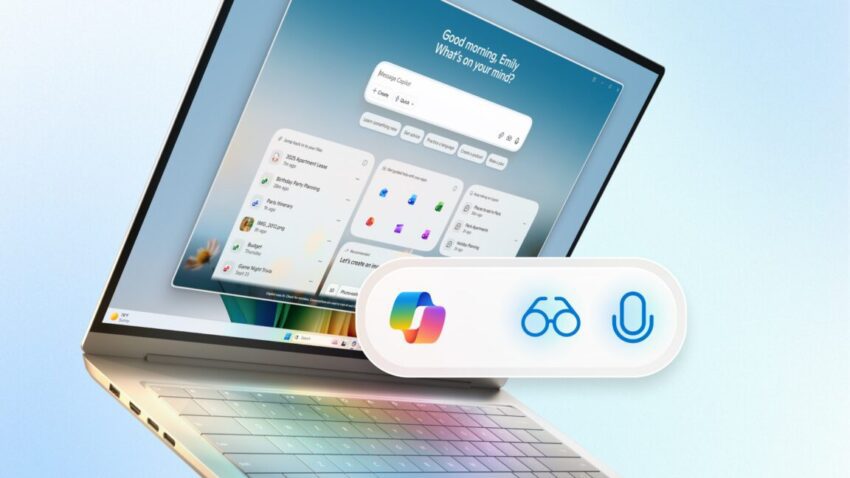
ai-powered features begin creeping deeper into the Microsoft is making significant strides in integrating AI-powered features into Windows 11, signaling a renewed focus on enhancing user experience through generative AI technologies.
ai-powered features begin creeping deeper into the
Overview of Microsoft’s AI Integration
In recent years, Microsoft has consistently centered its Windows announcements around advancements in artificial intelligence. The latest features unveiled for Windows 11 continue this trend, emphasizing the company’s commitment to generative AI. This approach aligns with broader industry movements toward more intelligent, responsive software solutions that can assist users in various tasks.
The Concept of “Agentic” AI
A key term emerging from Microsoft’s recent announcements is “agentic” AI. This concept refers to the capability of AI-powered software to autonomously perform tasks on behalf of users, allowing them to focus on other activities. The idea is to create a seamless interaction between users and their devices, where the AI can handle background tasks without requiring constant user input.
Yusuf Mehdi, Microsoft’s Consumer Chief Marketing Officer, articulated this vision during a recent press briefing. He emphasized that “AI PCs” should be capable of understanding user input in a natural manner, whether through text or voice. This capability would enable the AI to provide context-aware guidance based on what users are viewing on their screens. The goal is to create a more intuitive computing experience, where AI assistants can take proactive actions to assist users.
Lessons from Cortana’s Journey
While Microsoft’s current AI initiatives are ambitious, they also evoke memories of the company’s previous foray into the voice assistant market with Cortana. Launched in 2014, Cortana was initially positioned as a competitor to other digital assistants like Apple’s Siri and Amazon’s Alexa. However, it struggled to gain traction and was ultimately discontinued in 2021.
The renewed focus on AI-powered features in Windows 11 suggests that Microsoft is attempting to learn from the shortcomings of Cortana. The company appears to be leveraging advancements in language models and generative AI technologies to create a more effective and user-friendly assistant. This pivot indicates a recognition of the evolving landscape of AI and the importance of meeting user expectations in a more meaningful way.
Generative AI Technologies at Play
Generative AI technologies, which include advanced language models, are at the core of Microsoft’s new features. These technologies enable the AI to understand and generate human-like text, allowing for more natural interactions between users and their devices. By incorporating these capabilities into Windows 11, Microsoft aims to enhance the overall user experience.
For instance, the AI could assist users in drafting emails, generating content, or even summarizing information from various sources. This functionality not only saves time but also reduces the cognitive load on users, allowing them to focus on higher-level tasks.
Implications for Users and Developers
The integration of AI-powered features into Windows 11 has significant implications for both users and developers. For users, the promise of a more intuitive and responsive computing experience could lead to increased productivity and satisfaction. The ability to delegate tasks to an AI assistant may enable users to manage their time more effectively and streamline their workflows.
For developers, the introduction of these features presents new opportunities for innovation. As Microsoft continues to enhance its AI capabilities, developers will need to adapt their applications to leverage these advancements. This could involve creating software that integrates seamlessly with the AI features in Windows 11, allowing for a more cohesive user experience.
Stakeholder Reactions
The announcement of AI-powered features in Windows 11 has garnered a range of reactions from stakeholders across the tech industry. Some industry analysts view this move as a necessary evolution for Microsoft, positioning the company to compete more effectively in a rapidly changing technological landscape. The emphasis on generative AI aligns with broader trends in the industry, where companies are increasingly looking to harness AI to enhance their products and services.
However, there are also concerns regarding the implications of such technology. Critics argue that the integration of AI into everyday computing raises questions about privacy, security, and the potential for misuse. As AI systems become more capable, the need for robust ethical guidelines and regulations becomes increasingly urgent. Stakeholders are calling for transparency in how these AI systems operate and how user data is handled.
The Future of AI in Windows
Looking ahead, the future of AI in Windows 11 appears promising, but it is also fraught with challenges. Microsoft’s commitment to integrating generative AI technologies suggests that the company is positioning itself as a leader in this space. However, the success of these initiatives will depend on how well they are received by users and how effectively they address the challenges associated with AI deployment.
As Microsoft continues to refine its AI capabilities, it will be crucial for the company to prioritize user feedback and iterate on its offerings. Engaging with users to understand their needs and preferences will be essential in creating a truly valuable AI experience. Furthermore, addressing concerns related to privacy and security will be vital in building trust among users.
Conclusion
In summary, Microsoft’s latest announcements regarding AI-powered features in Windows 11 reflect a significant shift towards more intelligent and responsive computing experiences. By focusing on “agentic” AI and leveraging generative AI technologies, the company aims to create a more seamless interaction between users and their devices. While the lessons learned from Cortana’s journey inform this new approach, the success of these initiatives will ultimately depend on user acceptance and the ability to navigate the ethical implications of AI integration.
As the tech landscape continues to evolve, Microsoft’s efforts to redefine the role of AI in Windows will be closely watched by industry observers and users alike. The potential for enhanced productivity and user satisfaction is immense, but it will require careful consideration of the challenges that come with such powerful technologies.
Source: Original report
Was this helpful?
Last Modified: October 17, 2025 at 4:37 am
1 views















